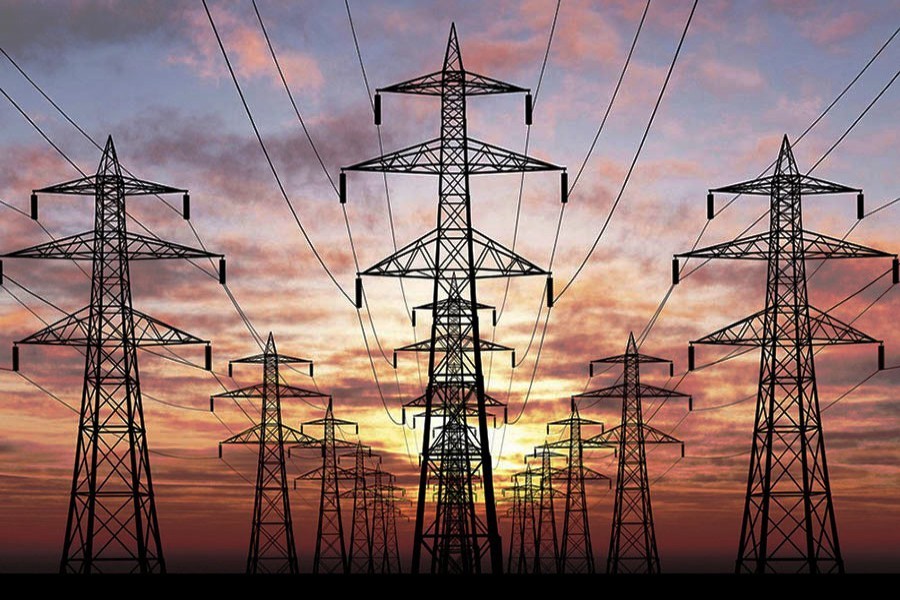Prime Minister’s Office (PMO) has been collecting necessary information and data from two divisions and their associate bodies in the power and energy sector to make some policy decisions on power, gas and petroleum prices.
According to official sources, the PMO will soon reconvene a recently postponed meeting to discuss the issues where dealing with a tough possible situation in the coming summer might top the agenda.
They said that the PMO had convened a meeting on December 15 to discuss the overall situation in the power and energy sector.
“But at the last moment, the meeting was postponed”, said a top official in the Power Division adding that a new principal secretary to the Prime Minister and also a new cabinet secretary took office on the day for which the meeting was postponed.
“We hope the suspended meeting will be called soon where the two top bureaucrats may attend”, he said.
The issue of power tariff enhancement in the retail consumer level will get a top priority in the proposed meeting”, said a senior official of the largest organisation in the power sector, preferring not to be quoted because of its sensitivity.
Power Cell director general Mohammad Hossain said that his organisation has also provided necessary data to the PMO and the Power Division as per their requirements.
Official sources said the PMO is collecting data and information against the backdrop of the government’s plan to increase power tariff at retail consumer level to cover a huge flaw in the power sector’s revenue collection.
Because of the purchase of electricity from the private sector at higher rates and sell it to consumers at lower rates, the loss of Bangladesh Power Development Board (BPDB), state-owned principal organisation, was estimated to be Tk 48,000 crore in the current fiscal year 2022-23.
The officials said the recent hike of about 20 percent in bulk power tariff, effective from December 1, might reduce the loss by only Tk 5000 crore.
To cover the remaining loss, all the six distribution companies were asked by the Power Division to submit their respective proposals to the Bangladesh Energy Regulatory Commission (BERC).
They already submitted a proposal to the BERC to increase the retail power tariff by about 20 per cent.
But the BERC needs to follow a public hearing to take any decision on the issue and the whole process needs about 90 days while the government is in urgent need to increase the retail power tariff.
In such a situation, the Cabinet on November28 approved an amendment to BERC Ordinance 2022 to empower the government to set fuel tariff on its own under special circumstances without waiting for the commission’s public hearing and decision.
Now the BERC is in a dilemma whether it will move to hold a public hearing to adjust retail power tariff or the government on its own takes decision on retail power tariff enhancement.
Officials said the PMO office wants to learn about the entire situation so that it can give an instruction to the Power Division to take the future decision.
The officials also said that a directive is also expected from the PMO meeting to tackle the situation in the next summer, which normally starts from February 15 with an extra load in power supply.
Normally an extra load of about 3000 MW in power supply is assumed to be coming from the agriculture irrigation sector in the coming summer, which may continue until May next year.
The fasting month of Ramada, which will begin from the first week of April next year will also put another load of 3000 MW.
But due to the primary fuel crisis, the government is under pressure to increase the power generation and a big deficit is apprehended in the coming year, officials said.
All these issues are expected to be discussed in the PMO meeting where the State Minister and the PM’s energy advisor are likely to be present, they said.
Prime Minister Sheikh Hasina at a meeting recently said that the government supplies electricity to everyone at subsidised prices though the production cost is much higher.
But it will not be possible to provide electricity at lower prices considering the global recession, she said.
"The actual cost will have to be paid," she said, adding that the price of gas has increased in the international market.
"Everyone, including businessmen in the country, will have to exercise austerity and will have to be ready to pay the money spent on the (increased) price of gas and transport cost. Otherwise, we will not be able to provide electricity. If you want (electricity), you will have to pay the real prices," she added.
The PM said costs of electricity, gas, water and fuel can be reduced by exercising austerity.
Currently the country’s installed power generation capacity is over 25,000 MW while the generation was limited within 12,000 MW because of the primary fuel crisis.


